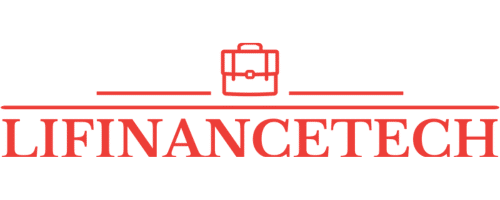
The world of freelancing has revolutionized the way businesses operate in recent years. With an abundance of talented professionals available at your fingertips, hiring a freelancer can be the ultimate solution to any project or task that requires expertise and flexibility.
Upwork is one such platform that provides access to millions of freelancers worldwide, making it easier than ever before to find the perfect fit for your business needs.
However, with so many options available on Upwork, it can be overwhelming to navigate through the process of finding and hiring a suitable freelancer. The fear of being scammed or ending up with substandard work can also make employers hesitant about using this platform. In this article, we provide a step-by-step guide on how to hire reliable and skilled freelancers on Upwork.
Global boom in the Freelancing world- Read Here
Setting Up Your Upwork Account
Did you know that Upwork has over 12 million registered freelancers and five million registered clients? That’s a lot of competition, but it also means there is an abundance of talent available for businesses looking to outsource.
To get started with hiring freelancers on Upwork, the first step is setting up your account. Here are some important steps to follow when setting up your Upwork account:
- Account Verification: Before creating a profile, make sure to verify your account by providing identification and contact information.
- Payment Methods: You will need to set up payment methods in order to pay your freelancers. Choose from options such as PayPal or direct deposit.
- Profile Creation: Your profile should be professional and showcase what you have to offer as a client. Be sure to include relevant experience and skills.
- Availability Settings: Set your availability so potential freelancers know when they can expect communication from you.
Keep in mind that while using Upwork is free for clients, there are fees associated with hiring freelancers through the platform.
Want to explore Upwork, read the review first- Read Here
Posting A Job Listing
1. Writing Job Description
When posting a job listing on Upwork, the first step is to write a clear and concise description of the project. This should include details such as the scope of work, expected deliverables, and any specific formatting requirements. It’s important to be as detailed as possible in order to attract qualified applicants who understand the full extent of the project.
2. Setting Up The Rates
Once you have written your job description, it’s time to choose your rates. Upwork offers various pricing options for both hourly and fixed-rate projects. Hourly rates are typically best for ongoing or long-term projects, while fixed-rates are ideal for one-time assignments with set deadlines. It’s also important to keep in mind that higher rates may attract more experienced freelancers but could also deter some candidates.
3. Narrowing Down The Volume Of Candidates
Utilizing filters can help narrow down potential applicants based on their skills, experience level, location, and other factors. When handling proposals from interested freelancers, take note of their communication style and attention to detail.
Be sure to ask any necessary questions before making a hiring decision and thoroughly screen each applicant before awarding them the contract.
4. Understanding Fees
Understanding fees is also an important aspect when hiring on Upwork. The platform charges a percentage fee depending on the total amount paid to the freelancer. Additionally, there may be additional costs associated with services like escrow payments or featured listings.
Is Toptal worth considering- Read review
Project Scope And Budget
Defining the project scope and budget is a crucial step in hiring freelancers on Upwork. It sets the foundation for your project and ensures that both parties have a clear understanding of what’s expected.
Defining requirements involves outlining what you need from the freelancer, including deliverables, timelines, and any other specific instructions.
Allocating resources is another important aspect of creating a project scope and budget. This includes determining how much time, money, and manpower will be required to complete the project successfully.
Establishing timelines is also critical to ensure that deadlines are met and work progresses smoothly.
When evaluating expertise, it’s essential to look at the freelancer’s portfolio, feedback from previous clients, and any relevant skills or certifications they may have. Establishing rates is an equally vital element as it allows you to set expectations upfront regarding compensation for their services.
Creating guidelines helps ensure that everyone involved understands their responsibilities and can refer back to them if needed. Identifying priorities assists in managing the workload effectively while reviewing submissions enables you to select candidates who best meet your criteria.
Reviewing Proposals And Portfolios

After creating a project scope and budget for your Upwork job posting, the next step is reviewing proposals and portfolios submitted by freelancers interested in working with you.
This crucial stage involves carefully analyzing each proposal to determine if the candidate possesses the necessary skills and experience required to complete the task. You need to evaluate their portfolio of work samples as well.
1. Skillset & Communication
The first thing you should look out for when reviewing proposals from potential candidates is their skillset. Ensure that they have relevant experience in the field or industry you require assistance with. Also, pay attention to how clearly they communicate their ideas, strategies, and methodologies for achieving goals outlined in your project brief.
2. Pricing Strategy
Another important factor to consider when evaluating proposals from prospective freelancers on Upwork is pricing strategy. Assess whether their rates align with your allocated budget and match up with the value they bring to your project. Additionally, check that their availability matches your timeline requirements so that there are no delays or compromises on quality standards once work commences.
Take into account any rating system available as it could serve as an indicator of previous clients’ satisfaction levels.
Overall, vetting through proposals and portfolios can be time-consuming but necessary towards finding top talent capable of delivering excellent results within set deadlines.
By assessing these factors – proposal analysis, portfolio evaluation, skill assessment, relevant experience, communication style, pricing strategy, availability check and rating systems -you’re sure to narrow down options significantly before making a final decision about whom to hire.
Conducting Interviews And Assessing Skills
The following section will explore some interview techniques and skill assessment methods that can help you make an informed decision.
One effective way of assessing a freelancer’s skills is through questionnaires and tests. These tools allow you to test their knowledge in specific areas relevant to your project or job requirements.
Additionally, video conferencing can provide insight into the freelancer’s communication skills, as well as their ability to work remotely.
Reference checks are also crucial when determining whether a freelance candidate is suitable for your project. You may want to ask for references from previous clients or colleagues who have worked with the candidate before.
Collaboration tools and platforms can also be used in this stage to assess the candidate’s proficiency in working with others.
Cultural fit and time management are other important factors that should be considered during the interviewing process. Make sure you ask questions about how they handle deadlines, prioritize tasks, and communicate feedback with team members.
By using these strategies, you can ensure that you select the best possible candidate for your project needs without sacrificing control over the hiring process.
Remember that selecting a high-quality freelancer requires more than just reviewing resumes and portfolios; it takes careful consideration of various factors such as cultural fit, skillset, references, time management skills, etc., all while utilizing effective interview techniques like questionnaires and tests along with modern collaboration tools like video conferencing!
Negotiations & Finalizing Contracts
With the terms and agreement stage, it is important to ensure that all aspects of the contract are thoroughly discussed. Payment methods should be agreed upon beforehand, with both parties understanding their responsibilities. It may also be beneficial for freelancers to have liability insurance in case any issues arise during the project.
Confidentiality agreements are essential if sensitive information will be shared between the two parties. Intellectual property rights should also be clearly defined in the contract, outlining who owns what after the completion of the project.
Additionally, payment schedules need to be established so that deadlines can be met without delay or confusion.
Revisions policy must also be fleshed out so as not to overburden either party while still ensuring a high-quality output. Termination clauses and dispute resolution mechanisms must also be included in order to protect both freelancer and employer from potential legal disputes down the line.
In this way, all possible scenarios are taken into account and addressed before they even happen.
Setting Milestones And Deliverables
After finalizing the terms of the contract, it is time to set milestones and deliverables. This process involves breaking down the project into smaller tasks that can be completed within a specific timeframe. It allows both parties to track progress and ensure that deadlines are met.
To ensure the successful completion of each milestone, payment terms should also be discussed at this stage. Milestone payments refer to paying the freelancer after they have accomplished specific stages of the project. This system ensures that work is regularly reviewed for quality control and provides accountability measures for both parties.
Timelines and deadlines must also be established during this phase. Clear communication between employer and freelancer on when certain parts of the project need to be done will increase productivity and prevent misunderstandings. Frequent updates regarding progress help keep everyone on track as well.
In case there are changes or adjustments needed along the way, contract revisions must also be considered before proceeding with any modifications.
Managing Communication And Collaboration
Communication and collaboration are essential components when working with freelancers on Upwork. It is crucial to establish effective communication channels from the onset of the project to ensure that everyone is on the same page. Whether it’s through email, messaging apps, or video calls, setting communication etiquette ensures that all parties involved understand how best to communicate.
Time zone management is another critical factor when working with remote teams. Freelancers may be in different time zones than their clients; hence it’s necessary to agree on a schedule that works for both parties. This helps avoid delays and misunderstandings due to a lack of timely feedback or missed deadlines.
Collaborative tools such as Trello, Slack, and Google Drive can help manage projects effectively by enabling team members to work collaboratively in real time. These tools keep everyone updated on progress made and facilitate seamless coordination between teammates.
Building trust among team members involves being transparent about expectations, and delivering quality work within agreed timelines while handling conflicts professionally whenever they arise. Establishing clear expectations at the outset of the project also goes a long way toward ensuring its success.
Engendering a feedback culture where constructive criticism is welcome encourages continuous improvement in deliverables. Accountability measures such as regular check-ins help track progress against set goals, providing an opportunity for corrective action if need be.
With these tips in mind, managing communication and collaboration with freelancers becomes more manageable, creating an environment where everyone feels valued and motivated to achieve success together.
Providing Feedback & Maintaining Relationships
Feedback etiquette should be established early on to ensure that both parties understand how to give and receive constructive criticism. It’s essential to focus on the task at hand rather than attacking the person behind it.
When giving feedback, highlight what was done well before suggesting areas for improvement. Performance evaluation should also be a regular occurrence throughout the project timeline to track progress toward goals.
This will help identify any potential issues or roadblocks and allow for adjustments to be made accordingly. Conflict resolution may also need to occur during this process, so having a plan in place beforehand can save time and prevent further complications.
Lastly, professional expectations should not be overlooked when working with freelancers from different cultural backgrounds. Understanding these differences ahead of time can avoid misunderstandings and promote long-term partnerships beyond just one project.
Additionally, establishing clear payment processes and time management expectations can maintain mutual trust between client and freelancer. Successful collaborations require more than just hiring the right talent – maintaining strong relationships through effective feedback, performance evaluations, conflict resolution, professionalism, payment processing and time management practices.
Wrapping Up
Hiring freelancers on Upwork can be a game-changer for any business owner looking to scale up their operations. With the platform’s vast pool of talented professionals, finding the perfect fit for your project has never been easier. However, it is crucial to follow certain steps to ensure that you get the most out of your experience.
In conclusion, hiring freelancers on Upwork opens up endless possibilities for businesses seeking growth opportunities with quality talent at their fingertips.
Wishes you a successful hiring!
Frequently Asked Questions (FAQ)
How Do I Determine If A Freelancer Is A Good Fit For My Project?
When determining if a freelancer is a good fit for your project, it is important to conduct a thorough skill assessment by reviewing their portfolio and past work experience. Additionally, evaluating their communication skills through initial conversations or interviews can help ensure that they are able to effectively understand and execute the tasks at hand.
It may also be beneficial to assign a test project to assess their abilities in action before committing to a larger project.
What Should I Do If A Freelancer Misses A Deadline?
When a freelancer misses a deadline, it can be frustrating and stressful for the employer. However, there are several steps that can be taken to address this issue.
Communication expectations should be clarified in advance to ensure clear understanding of responsibilities and deadlines. If necessary, the revision policy should also be reviewed to determine if adjustments need to be made.
How Do I Handle Payment And Invoicing On Upwork?
The payment process and invoicing options on Upwork are designed to offer a secure, streamlined experience for both clients and freelancers.
The platform uses an escrow system that protects payments until the work has been completed successfully, ensuring that funds are not released prematurely or unfairly withheld.
Can I Hire A Freelancer On Upwork For A Long-Term Project?
Hiring a freelancer on Upwork for a long-term project requires careful consideration of various factors.
Project duration, the experience and communication skills of the freelancer, their availability flexibility, contract terms, work quality expectations, payment structure, and job posting requirements all play significant roles in ensuring that the project is successful.





